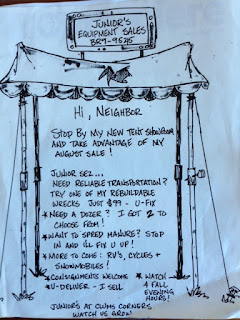During my 1961 summer break from law school, I took a position with the New York State Department of Health Office of Medical Defense in Albany. The official in charge was James H. Lade, M.D., a longtime employee of the department whose previous position included syphilis control. When I first came on the job, Dr. Lade explained that his office’s primary mission was to take charge of medical catastrophes in the event of a nuclear war. The office had been created on July 29, 1950, during the cold war “to draw up plans for the mobilization of medical resources in the case of enemy attack.” It was initially funded, in part, by the Defense Production Act of 1950.
One of my first jobs was to accompany another employee to a warehouse in Cohoes to inventory hospital equipment and medicine. I was told that there were similar stockpiles throughout the state, some in state prisons.
Following the inventory, I questioned Dr. Lade why the stockpile of medicines had expiration dates of 1952 and 1953. Dr. Lade replied that the Office of Medical Defense was created from the fear of a nuclear attack. Hospital equipment and various Medicines and hospital equipment were quickly acquired and stored, but as tensions eased, the legislature did not appropriate funds to restock medicines or maintain or purchase updated hospital equipment. I asked Dr. Lade when, after a nuclear attack, he would know when to come out of his bomb shelter to take charge of distributing the medicines and equipment. He just laughed and told me that he had no bomb shelter, as he believed that no one would survive such an attack. He said he didn’t even know if the hospital equipment would still work since it had been stored in various places and never routinely checked.
Now I wonder whether, later in this decade, there will be warehouses filled with obsolete ventilators, masks, gloves, and other Covid-19 paraphernalia that we are now acquiring but may be deemed unnecessary after a vaccine is invented and put into universal use.
May 13, 2022 Update: We now have vaccines, but are warned that it is unlikely that covid variances will never go away, and there will likely be more pandemics in the future.






